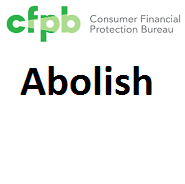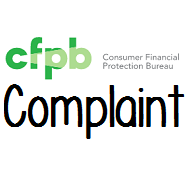The following is not legal advice. It is written for educational purposes only. If you have a question or if you believe you have a complaint, submit an inquiry on bachuwalaw.com
Contents
Alex & Darr, The Points Attorneys
Welcome to the inaugural post by Alex & Darr, The Points Attorneys. We are lawyers who help points-and-miles enthusiasts bring claims against banks related to the miles-and-points hobby. In these posts, we’re looking forward to answering your questions and providing some general tips to help DoC readers. If you want to add your questions to the list, chime in in the comments of this post. Before we get to that, here’s a a brief introduction:
Who is Alex? Alexander Bachuwa is an attorney licensed in New York and Arizona who practices in the area of consumer protection law. You might know him from his Fine Print posts on The Frequent Miler or from his humorous points blog, The Points Of Life. He once came very close to completing a 2-pound cheeseburger challenge, but was foiled by his arch-nemesis, tomatoes.
Who is Darr? Alexander Darr is an attorney licensed in Ohio and Illinois. Darr is the owner of the aptly named Darr Law Offices LLC and can be found online at DarrLawOffices.com and AlexanderDarr.com. He is a miles-and-points enthusiast, but not an addict. He felt like the winner of a two-pound burger contest when he spent 5 nights at the Grand Hyatt Kauai for his honeymoon for 100,000 Hyatt points, instead of spending thousands of dollars.
The Question
“Hello Alex,
I’m sure you must have seen quite a number of interesting cases over the years. By the time they reach you, the damage is often done and they are seeking relief. What would be one piece of pro-active advice you’d give to the Miles and Points community that may have helped to avoid some of the cases you’ve seen?”
Our Response
Lawyers aren’t magicians. We don’t wave a wand and change the facts to win cases. We present the evidence available to us to best convince a judge or arbitrator that our client should win.
To do the best job, lawyers need to have the best evidence to support their client and defend against the opponent’s arguments. That’s why the number one thing I tell any client when he is in a dispute or sees one on the horizon is to document and keep good records of what happened.
Here are a few simple recommendations to help build your case:
Screenshots
Many banks allow users to “Live Chat” with customer service. This is a great way to avoid long hold times on the phone. But there isn’t always a good record of the chat. Some banks give you the option to email a copy of the chat conversation to yourself at the end, and that’s great when it works. But the surefire way to document your live chats is to take screenshots.
I recently had an arbitration where the client had done a Live Chat with the bank. The bank promised that my client could keep his signup bonus points if he closed or changed the credit card. My client took a screenshot of the chat and then closed the card. The bank took his points. We were able to resolve the claim in my client’s favor thanks to the screenshots.
Dealing With Paper
If you’re a points-and-miles enthusiast, you get lots and lots of “junk” mail and other paper from banks. But not all of it is junk, and some of it can be useful. If you can come up with a system for keeping all of the original paper, that’s great. For me, I like to have less paper in my office, but I also like to keep good records. That means digitizing a lot of paper. That task can be a breeze with the right tools.
My office uses the Fujitsu ScanSnap ix500–it’s probably overkill for most consumers but works great. You’ll find similar offerings from other scanner manufacturers (Epson, Brother, etc.). The market has plenty of smaller, more portable options as well. And a full-blown scanner may be too much for your needs, because your iPhone or Android device can make a pretty great scanner. There are free apps that get the job done and paid apps with bells and whistles.
Whatever your needs, there’s a solution for you to keep good records of the physical paper and mail you receive as part of the points-and-miles hobby. Find what works for you and use common sense to keep the stuff that might be helpful down the line.
For example, my partner had a case where his client received two pieces of mail about his credit card. One piece of mail congratulated the client for being a loyal and excellent customer, encouraging him to keep spending money on his credit card. The other piece of mail said his spending wasn’t allowed, the account would be closed, and his earned rewards would be forfeited. Because the client kept good records, my partner was able to present a compelling case to the arbitrator that the consumer should get to keep his points.
One other piece of paper worth saving is the card’s terms and conditions. We’re all guilty of getting that new, shiny credit card and throwing away all of the included paper. But those included terms and conditions are the contract that governs your relationship with the bank. They’re important! If you have a dispute a few years down the line, banks have been known to try to use current terms and conditions to support their position, when the original terms and conditions are more helpful for the customer. If you have those original terms and conditions you can use them to support your argument.
Recording Phone Calls
*Depending on the State where you live, where you’re calling, and other considerations, it may be illegal to record a phone call without everyone’s permission. Please make sure you know and understand the applicable rules and laws before you record a phone call.*
There are (many) apps designed to record phone calls, especially on Android. Phone calls using your PC (Skype or Google Voice, for example) often include a built-in record feature. For me, the easiest thing to do is make my phone call with speaker phone and use a separate device to record the conversation. It’s not an elegant solution, but it works well and is less prone to issues.
One case where a phone call recording was essential to the win involved a refund of a credit balance from a cable provider. The cable provider owed a credit balance of approximately $200 to the client. The client canceled his service and never received his credit balance. The client called the cable company and recorded the call. In that call a representative assured the client that there had been an error, but that it had been resolved and that he’d definitely be getting the refund soon. Unsurprisingly, the refund never came, leading to an arbitration. In the arbitration, the company took the position that the refund was never owed, and so never paid. After sending the recording to the cable company, they promptly settled the case.
Final Thoughts
”Be Prepared.” The best time to collect information and evidence is before a dispute. In my screenshot example, my client could have taken the live chat representative at his word and simply canceled his account. If he had done that without saving a screenshot, his case would have boiled down to “he-said-she-said.” But my client saved the screenshot and made his case. Collect your evidence as you go along. If you never need it, that’s great; if you do need it, you’ll be happy you kept good records.
A naysayer might suggest that this is a silly waste of time and unnecessary because the banks have records. Keeping some good records for evidence doesn’t have to be expensive or time consuming. Screenshots are free. Scanning apps can be free. And online storage is free or cheap. The key is making small adjustments to your hobby to keep better records. In the example of the case-winning screenshots, those screenshots took a few seconds to take and store away, but they won the case.
Second, you shouldn’t trust the bank and their record collection procedures. I’ve had many cases with banks and other businesses where they are unable to pull up phone call recordings from as little as 12 months prior. Take ownership of your case and the evidence that supports it.
That’s all for our first post. If you have a question you would like us to answer, please put it in the comments of this linked post. This allows us to keep the comments of this post related to this topic.
Note From Will: Thanks to Alex & Darr for agreeing to answer readers questions. As mentioned earlier Alex also has a series of posts on Frequent Miler called the Fine Print Series that I’d strongly recommend reading. If you need legal advice or help then head over to bachuwalaw.com.






For Android I’ve found that “Boldbeast recorder app” works with my stock (not rooted) Note 10+ running Pie (but not with BT headphones or in Vehicle BT) But also works on Note 9 as well as S8+. Tried a bunch of recording apps and most are disappointing. Its an elgenat setup as well your phone shows a floating button to push to initiate recording and no beeps either.
This is not legal advice and I live in a single party state. But 99% of the time when you call in you hear ” This call maybe recorded…..” I view that as tacit agreement that I may record the call as well if I’m out of state, but you can always joke when CSR comes on the line “You know that this call maybe record right… and laugh hahah” if your worried.
I think that it would all depend on the judge, but I think that judges or arbitrators a majority would agree that if A has informed B then two party consent exist based on “this call maybe….” and reciprocal informing is not required. But I wouldn’t record an ex-wife /girlfirend, employer, etc that lives out of state unless you talked with an atty.
Google Voice only gives you the option of recording incoming calls and not outgoing calls.
Great information in the convoluted world of points and shutdowns
Thanks Darr
Darr
I’ve got a case for you guys. British Airways is refusing to pay out on their Match.com 150 miles per dollar promo from a few months ago. I have all the screenshots showing the promotion and my final payment. I’ve filed 2 missing cash back claims but they deny both of them without providing a valid reason. I almost feel like giving up, but I know I am owed 80,000+ British Airways Avios. Any help you guys can provide would be greatly appreciated.
I looked into recording calls for Illinois. Seems to be a 2 party consent state, however recording on a electronic device is gray area and then only considered a one party state. i recorded my merill+ over the phone app when some applicants were only getting 25k points.
https://www.rcfp.org/reporters-recording-guide/tape-recording-laws-glance
This link is relevant. I’m no lawyer and can’t confirm the accuracy.
Considering that Drop never excluded gift cards from their ToS, do you think there is merit in a class action lawsuit against them?
A lot of us gave our valuable personal information to them (number, email, purchase amounts at various common merchants such as Walgreens, Whole Foods, Trader Joes, Target and Amazon, even bank logins) in exchange for the possibility to earn points redeemable for credit at merchants including Amazon. Right now they’ve frozen anyone who is doing gift card purchases citing “security risk to the account” which is just a lie. If they take our personal information but don’t deliver on our earned points, does that merit a class action?
I looked very briefly at the terms, and there could theoretically be a class action. I don’t see an arbitration provision or class action waiver–that’s a good start. But then we see that the place for disputes is Toronto, Ontario. It’s possible that that won’t cause issues. And it’s also possible that this chunk of the terms could get thrown out for a variety of reasons.
In short, I don’t see any obvious problems with a class action from a procedural standpoint, and it sounds like affected customers have a claim. Whether that claim would win is another matter.
Consider starting a class action against 1800Flowers. They just screwed a ton of people when they decided not to honor mile promotions on purchases made with gift cards.
They never updated their terms (anywhere) to exclude purchases made with gift cards, they just instructed their CSR to deny everyone miles.
I need to do more reading on this. I’ve had a few people mention it. Maybe it will work its way into a future article.
Just curious, and I’m sure it varies from case to case, but what are your fees like? I see examples for a client getting back $200… Seems like lawyer fees would eat into that in a hurry. I don’t question your value, just trying to understand the balance between getting a consumer getting their points/cash back and you being compensated for your expertise.
Depending on the state or federal statute the claim is brought under there are provisions for “attorneys fees”. So a client may only make a couple hundred bucks but the clients attorney could make several thousand. A lot of consumer protection laws have these attorneys fees provisions to encourage consumers to seek legal help despite the small value of their claim. It incentivizes attorneys to take these cases as they are getting paid their market rate for their work. Lastly, it encourages banks/providers to settle because if they drag out the legal matter and they know they will lose, the attorney is just racking up fees for his time thus costing the company more money in the end rather than just giving the customer the couple hundred dollars they were rightfully owed to begin with
Not really true. Especially not in arbitration or small claims courts.
I think Alex B even mentions in his blog that his request for attorney fees on the recent cool case has been denied.
It looks like he’s basically just building the name and testing the waters. Then, again, perhaps they know something we don’t. Or maybe one day a judge or arbiter would be so outraged by a meritorious claim that they will award the attorney fees.
P.S. Now that class action might be reinstated by CFPB in place of the mandatory arbitration rules — things might change, and they might finally get some payoffs!
re: CFPB. I think the supreme court has been very clear that arb agreements are enforceable. So how can the CFPB outlaw certain provisions? I should think the supreme court would be controlling, right?
Good thoughts everyone. I’ll try to bring some clarity, but it will be an oversimplification:
Federal law allows arbitration in the first place (The Federal Arbitration Act). What the Supreme Court has said is that under the Federal Arbitration Act, a state can’t limit arbitration within its borders, and that generally arbitration agreements are enforceable. Everything stems from the Federal Arbitration Act, including the Supreme Court’s interpretation of it.
The CFPB also derives its power from federal law, and has rule-making authority. So you can think of the proposed CFPB rule as sort of like an amendment to the Federal Arbitration Act.
Our fees vary from case to case, but are never paid directly by our client (for consumer arbitrations, that is). We work with out client to figure out their hopes and expectations for the case, try our best to get them that, and then work with the business and client to cover our fees. We’re still working on figuring the system out.
When we have smaller recoveries, we typically let the client keep it all and move on to the next case. We’d rather have a happy client than ask them to split a $200 award with us.
Very interesting post!
Good to know that there’s professional resource out there.
Very good information to know especially in these times thank you for posting